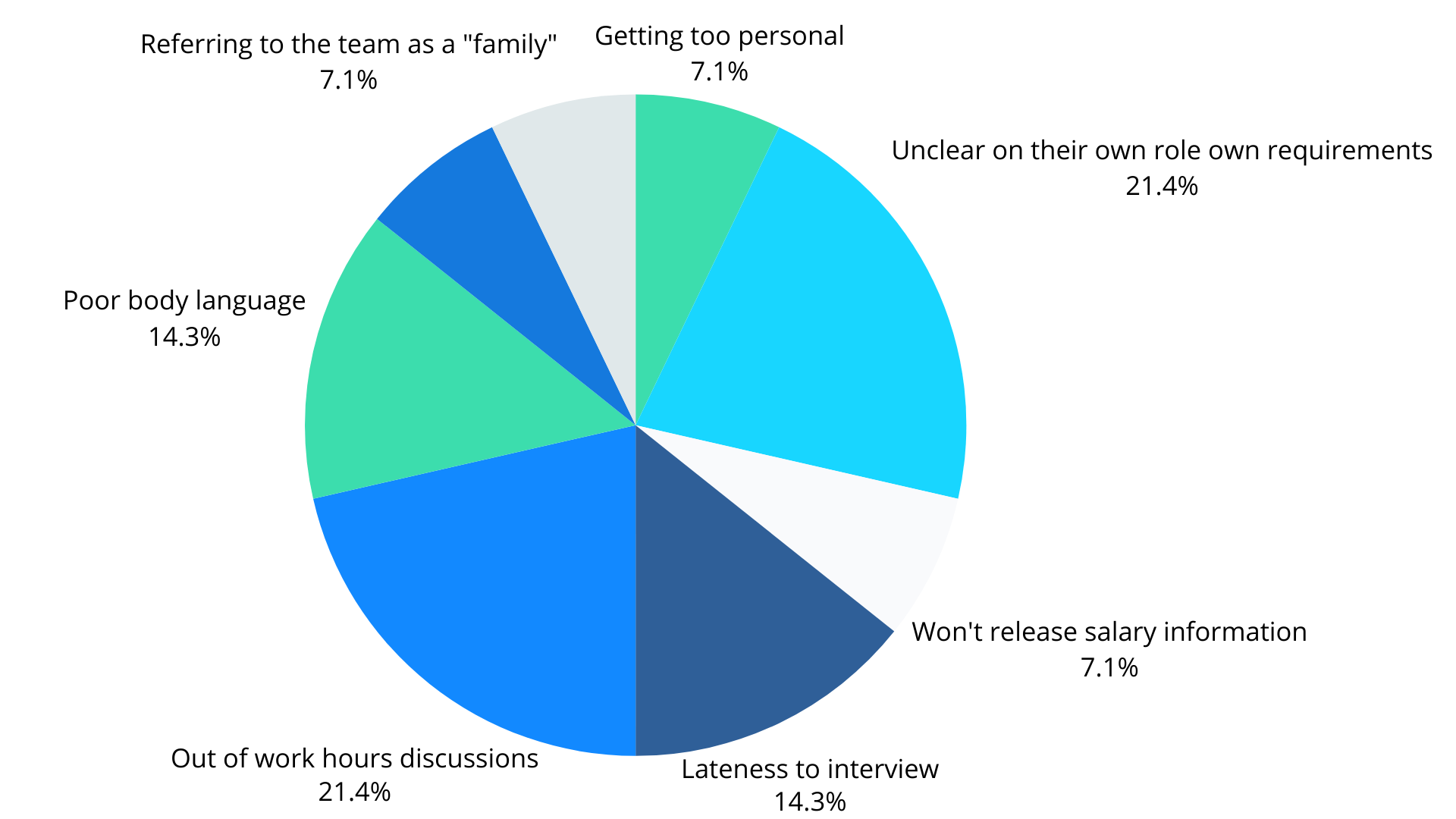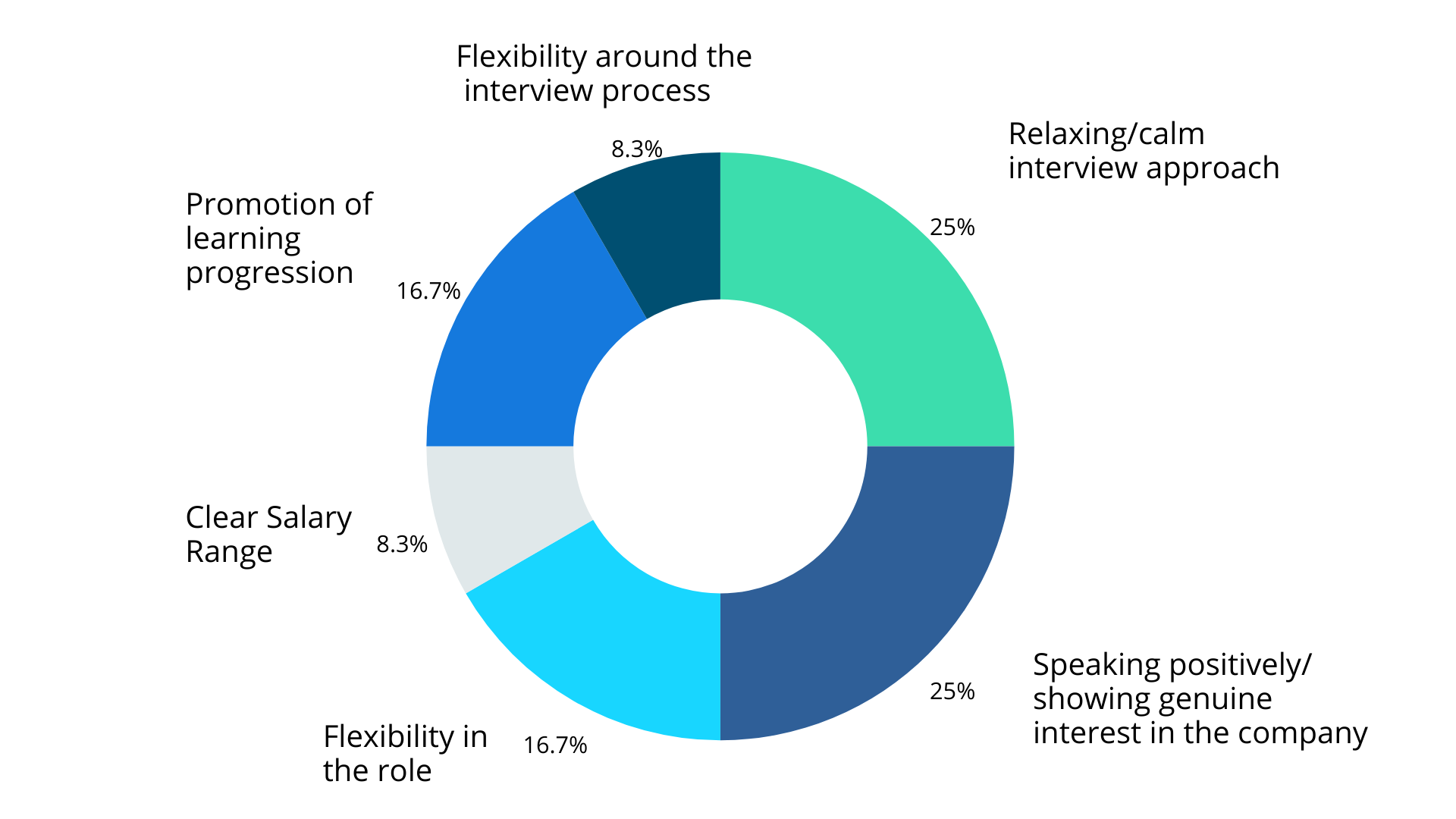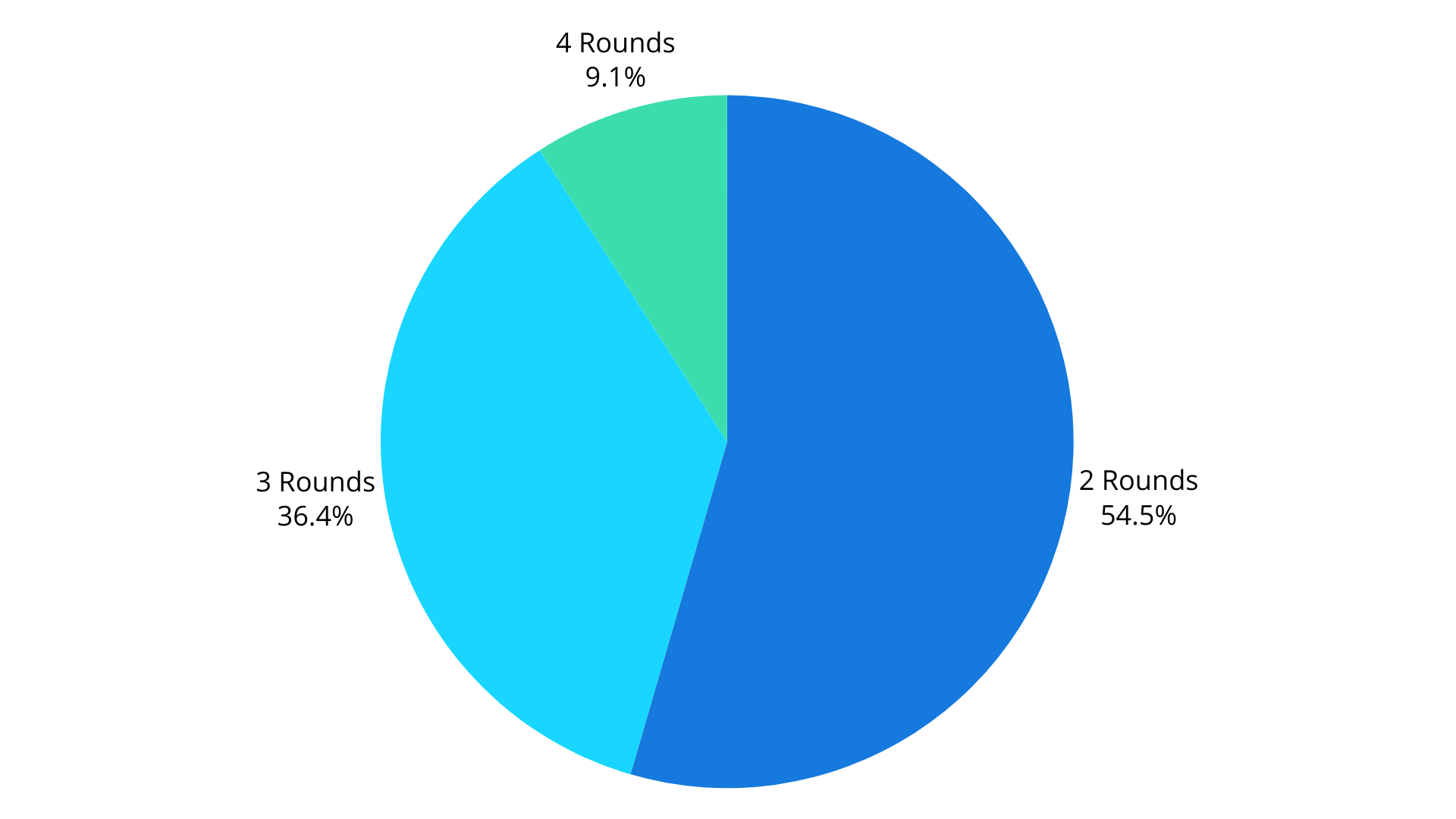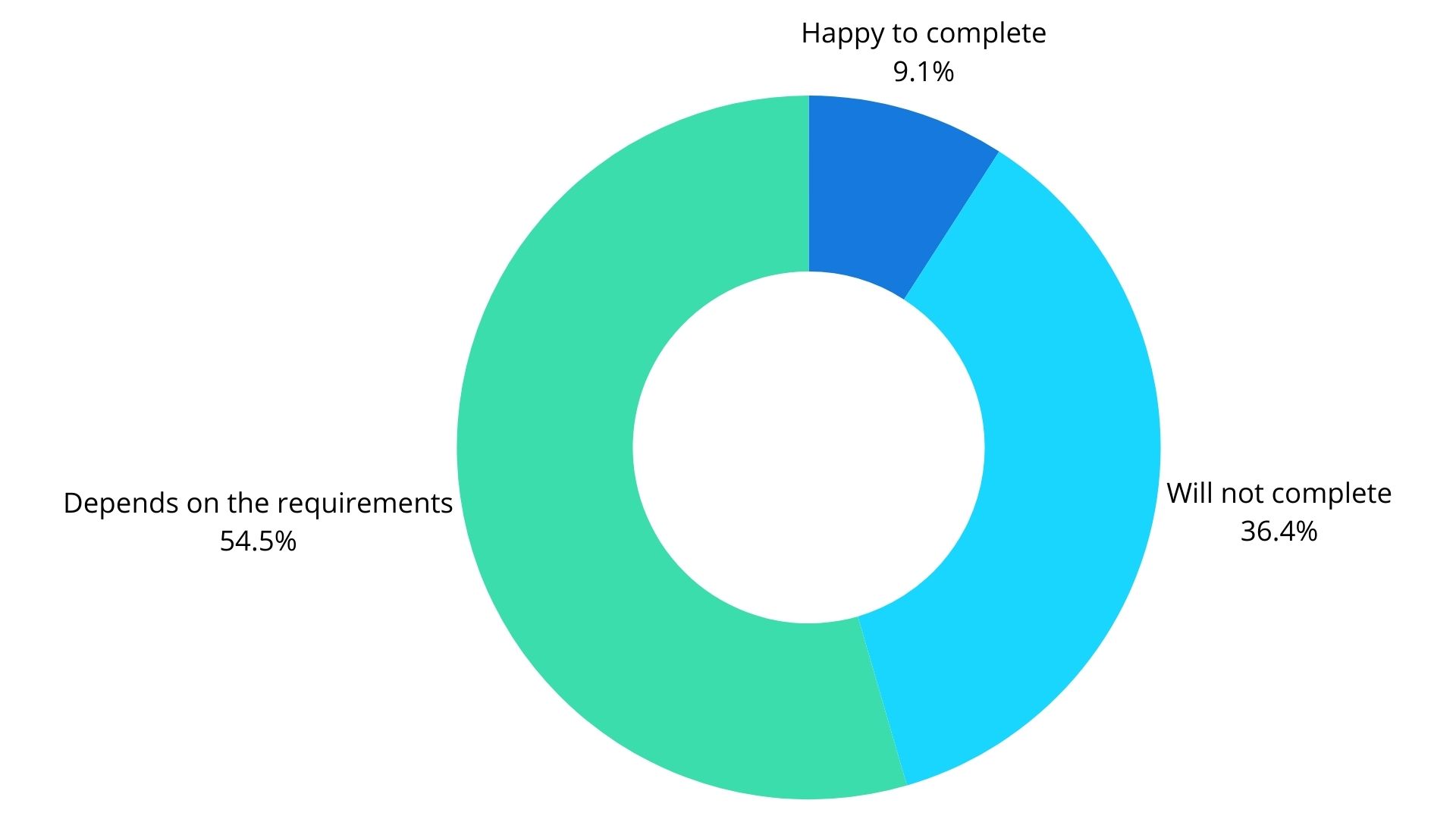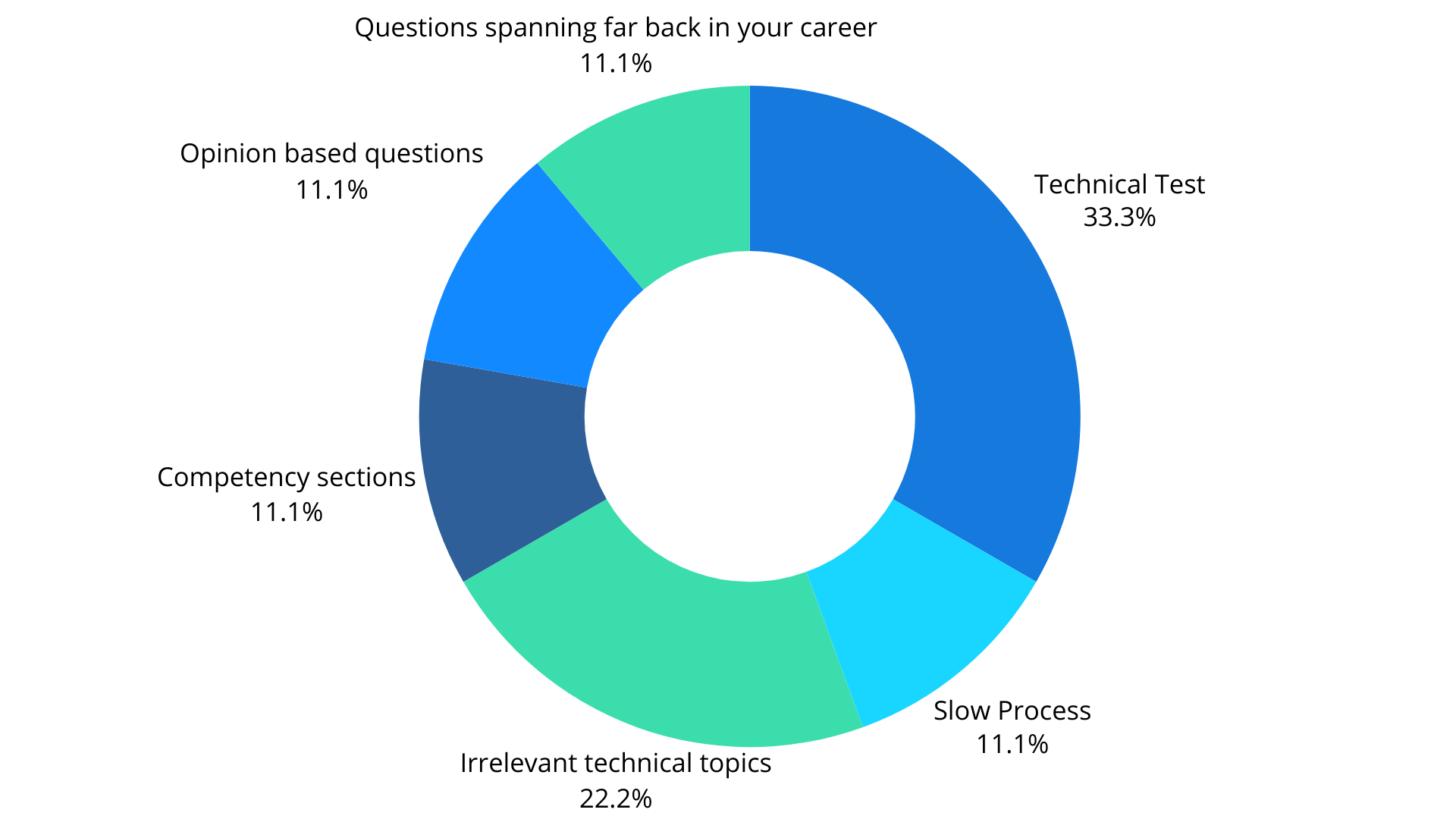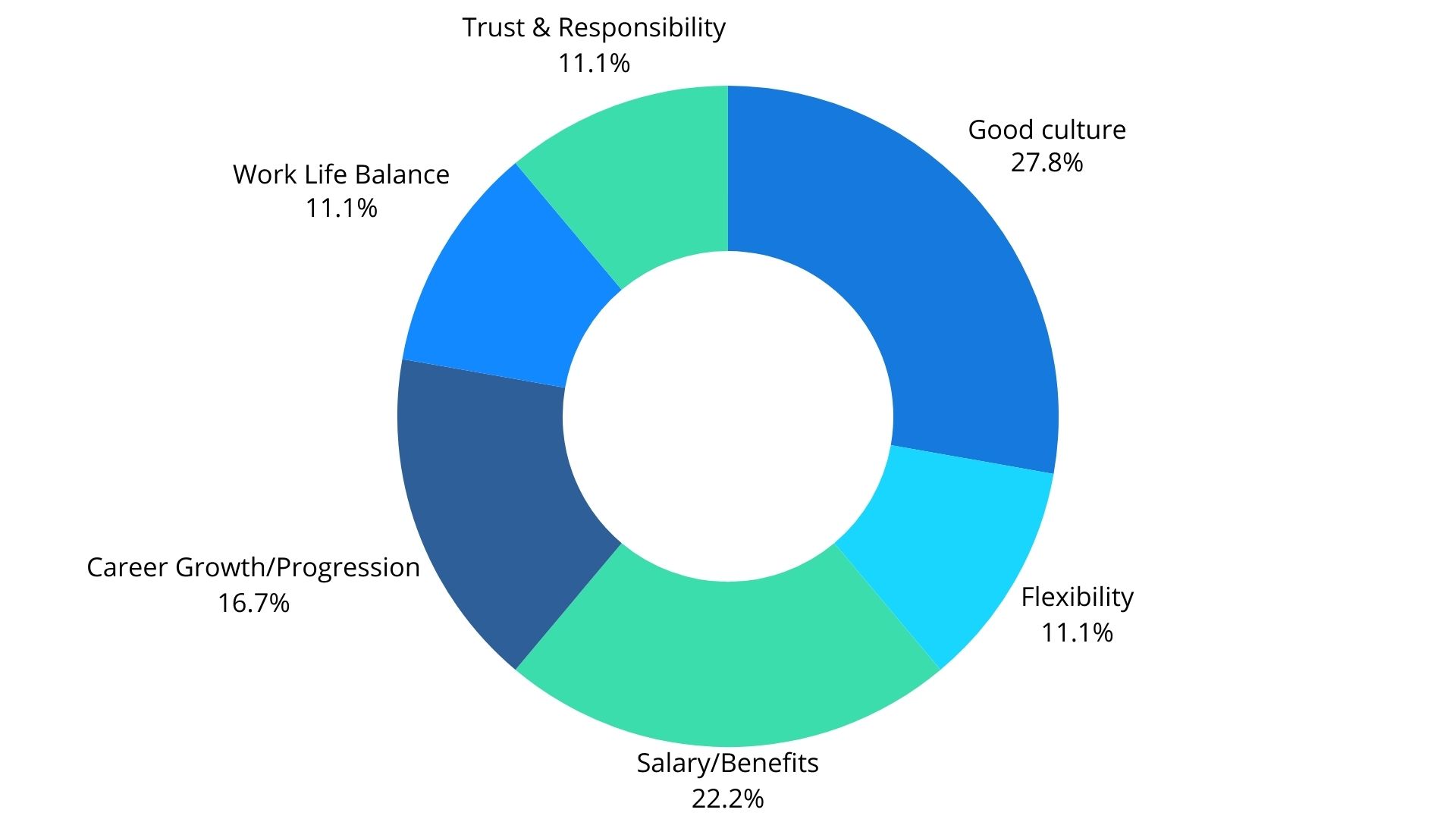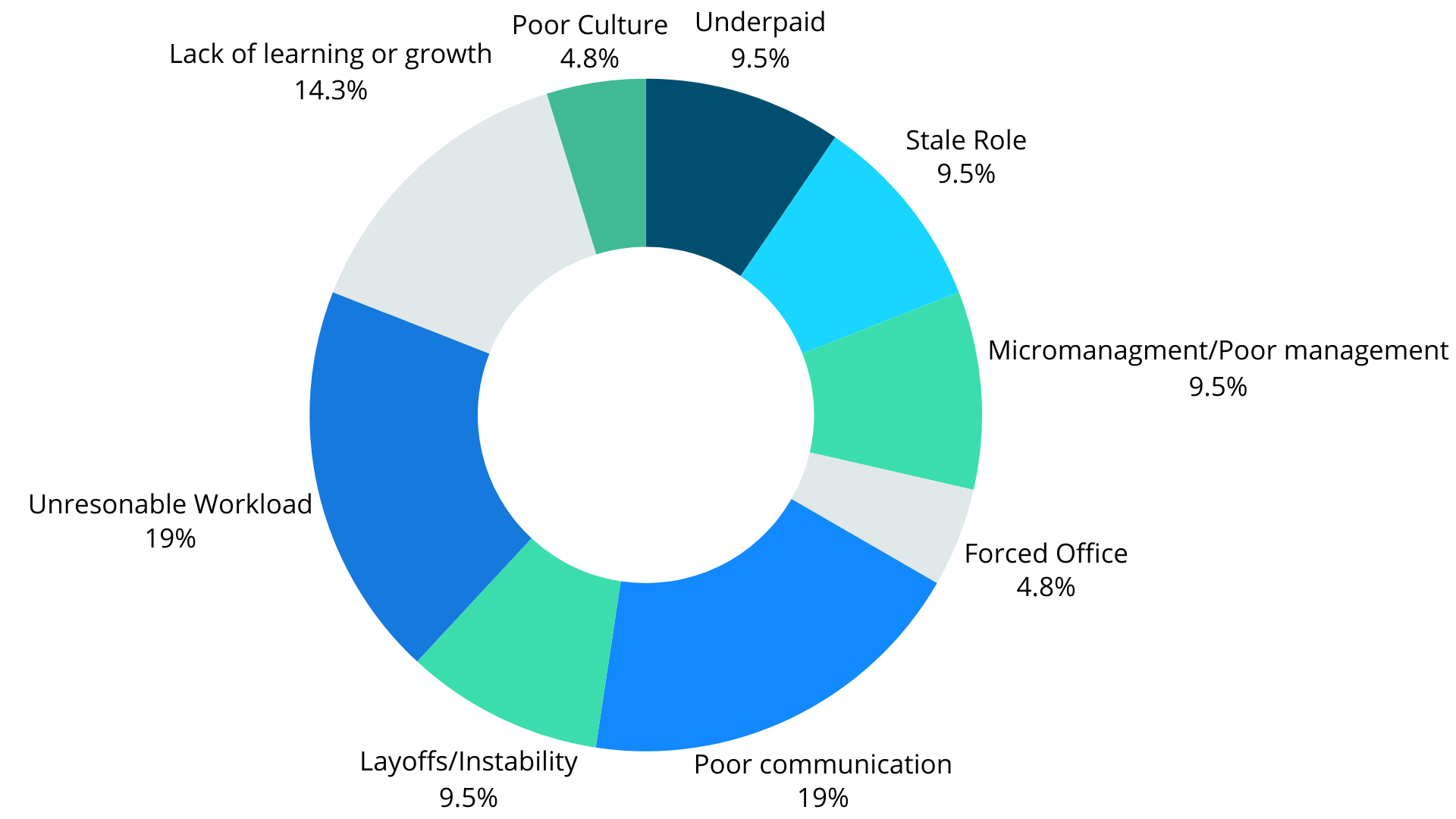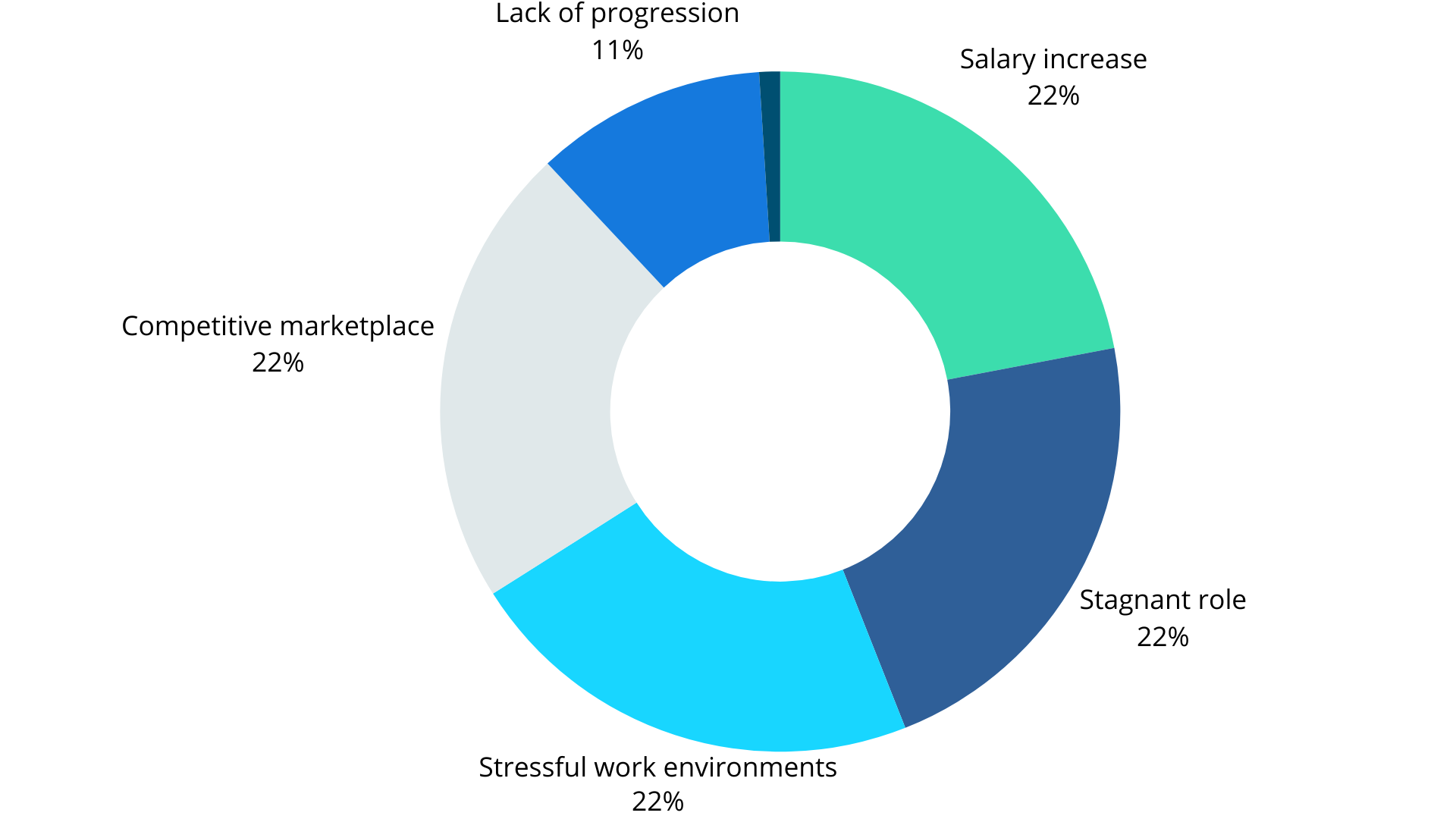
Hiring and Retaining Software Engineers in Ireland: Interview Report with Software Developers
Our initial installment of this series revealed some very interesting data around Software Developers and why they move jobs often. It showed that the average tenure within the Software Development space right now is only around 18 months! To attempt to understand why this would be, we interviewed Software Developers of all levels to assess their reasons for changing roles and what impacts the decisions they make around this.
One of the first questions we asked was, “What is a red flag from an employer in an interview?”
We found that the top answers were:
- Unclear on their own requirements/unable to answer questions around the role
- Discussions around out of hours work
- These answers were closely followed by “lateness” and “poor body language”.
First impressions count. Regardless of how great your company and role is, if you make a bad first impression it could be game over. Interviews are a commitment on the candidates side too and, for the most part, they are interviewing you as much as you are interviewing them, so it’s important to put the right message across from the get go to get candidate buy-in.
We asked them, “What is a green flag from an employer in an interview?”
For this question the most popular responses were:
- Speaking positively/showing genuine interest in the company (25%)
- Calm/relaxing interview environment (25%)
Interviews can be a reflection of the actual work life, and so it’s important to set a good impression of what it might be like to work there and what you might be like to work with, early on. Creating a calm and relaxing interview environment not only allows the candidate to feel more at ease with you and your organisation, but it potentially allows them to perform at their best. Showing interest and enthusiasm for the role, whilst in the interviewer spot is hopefully self explanatory – if you don’t seem enthused about working there, why would anyone else want to?
We asked, “How many interviewing processes do you usually balance at once?”
- 1 (20%)
- 2 (10%)
- 3 (40%)
- 4 (20%)
- 5+ (10%)
Another question asked was, “How many rounds of interviews do you feel is ideal?”
- 2 rounds (54.5%)
- 3 rounds (36.4%)
- 4 rounds (9.1%)
When a candidate is looking for a job actively, they’re likely to apply and interview with a number of organisations to assess their best fit. This means, they are interviewing you just as much as you are interviewing them. Considering most candidates will be in full time employment when searching for another role it can certainly become a bit of a balancing act. Long, drawn out processes not only can put candidates off the role but they can also cost you the talent due to other companies moving faster. The best and most successful recruitment processes are concise and conducted in a speedy manner to secure talent.
We asked “How many offers do you usually receive after a job search?”
- 1 (37.5%)
- 2 (25%)
- 3 (25%)
- 4 (12.5%)
As we can see, almost two thirds of candidates interviewed received more than 1 job offer when they searched for a new role. This means competition for the most part and shows the importance of standing out and impressing candidates from the get go.
We asked, “How do you feel about technical tests?”
- Happy to complete (9.1%)
- Will not complete (36.4%)
- Depends on the requirements (54.5%)
Our interviews found that Senior people were less likely to be open to completing technical tests. 54.5% reported that it entirely depends on the nature and requirements of the tests. Technical tests are a tricky one, when a candidate is balancing multiple job interviews, while working full time, it can be impossible to complete multiple take home tests at once. A lot of candidates also do not like the in person assessments as they feel it puts unnecessary pressure into the interview. Candidates can also be disgruntled in having to complete technical assessments that are not aligned with the job profile. If a test is necessary for assessment employers should be mindful of the time it will take and the relevance of it to the role.
We asked, “What stages of an interview do you not like?”
Our top answers were:
- Technical tests (33%)
- Irrelevant technical topics (22.2%)
Opinion based questions, competency based questions and questions about far in your past were also answers we received during these interviews.
Candidates mentioned their frustrations around questions that are irrelevant to the position itself, they went on to explain that if an interviewer is asking questions that don’t seem relevant to the role, it gives the impression that they either do not know what the role entails or don’t care enough to update their interview process to reflect it. Candidates also mentioned frustrations around long, drawn out processes, it seems that when this happens they question the company’s commitment to making the hire in the first place.
We asked, what makes you stay in a company?
Our top answers were:
- Good culture/team (27.8%)
- Salary/benefits (22.2%)
- Career Growth/Progression (16.7%)
With 11.1% each, other answers reported were flexibility, good work life balance and trust and responsibility. It should come as no surprise that a good working environment comes out on top, considering how much time in our week we spend here!
We also asked “What makes you leave companies?”
Our top answers were:
- Poor communication (19%)
- Unreasonable workload (19%)
- Lack of learning (14.3%)
These answers were closely followed by layoffs/instability, micromanagement or poor management, underpaid and role becoming stale.
Poor communication and unreasonable workload came out as the most popular answers, both of these can lead to additional stress within the role which in turn feeds a candidate want to leave. Lack of learning was another popular answer and it’s no surprise. Technology changes so often that, to keep their skills fresh and profile employable, technical candidates need to be continually learning within their roles, if they’re not – they’ll go somewhere they will.
We asked “What benefits do you care about the most?”
Our top answers were:
- Flexibility/Remote working (18.5%)
- Bonus (14.8%)
- Health and Dental (11.1%)
- Training/learning opportunities (11.1%)
- Pension (11.1%)
Flexibility and remote working came out on top, which is no surprise. Most of us have had a taste of this way of working through the pandemic, and now most don’t want to go back to fully office based roles. For Software Developers, where their role can be carried out from a computer and where concentration is often key, working from the peace and comfort of their own home is something a lot now strive for. Surprisingly, one of our least popular answers in this question was culture – which was the top answer for why candidates stay in their roles. This is likely as some companies advertise “good culture” as an employee benefit, when the feedback from our interviews said that people felt that should be a given in any role rather than a unique selling point.
We asked, “What made you choose one employer over the other previously?”
Our top answers were:
- Better salary (27.8%)
- More flexibility (16.7%)
- Better job role/responsibilities (11.1%)
- Personal interest in the company (11.1%)
Our top answers are in no way surprising. For the most part, candidates prefer roles that pay more and are more flexible. There will of course be other factors at play at times, some that are more career progression driven could be more aligned to strategical moves to gain experience, some that are more focused on work life/family life will be preferring flexibility, office location, family benefits etc, others simply just want to earn as much as possible.
We asked, “Why do you think the turnover is 18 months in Software Development right now?”
- Salary increase (22.2%)
- Stagnant role (22.2%)
- Stressful work environments (22.2%)
- Competitive marketplace (22.2%)
- Lack of progression (11.1%)
We had a fairly even spread of answers for this question regarding short turnover – it’s an accumulation of a variety of things making the Software Development employment market an extremely fluid one. It seems no clear answer exists, we have a variety of factors at play within the industry which each in their own way play a role to the low tenure and high turnover.
Stay tuned for our next installment where we will explore current salary levels and recent recruitment trends!
More Insights
Meet the team
As the core of recruitment is finding top talent, it only makes sense that we ensure we work alongside the very best in the market. We are a group of like-minded technical recruiters who put people at the core of everything we do. Our specialist technical recruitment consultants have the capacity to build teams, appoint leaders and nurture the careers of technology professionals in all locations across permanent and contract roles.
View more